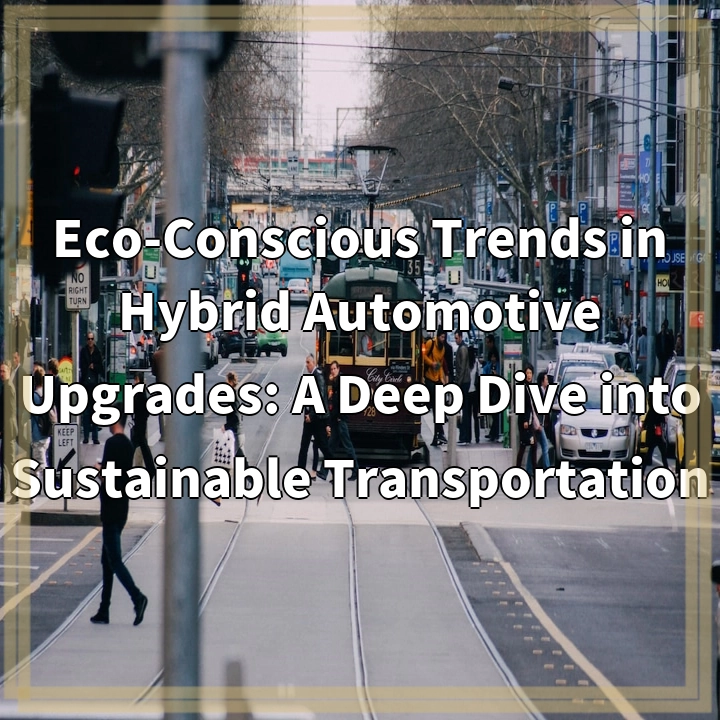
What is Eco-Conscious Trends in Hybrid Automotive Upgrades?
Eco-conscious trends in hybrid automotive upgrades refer to the ever-evolving advancements and modifications made to hybrid vehicles to enhance their environmental performance and sustainability. Hybrid vehicles combine an internal combustion engine with an electric motor, offering improved fuel efficiency and reduced emissions compared to traditional gasoline-powered cars.
Real-World Problems Associated with Eco-Conscious Trends in Hybrid Automotive Upgrades
While hybrid automotive upgrades contribute to the overall goal of sustainable transportation, they are not without their challenges and limitations. Understanding these real-world problems is essential for a comprehensive understanding of the topic:
1. Limited Electric Range
One of the primary challenges of hybrid vehicles is their limited electric range. While hybrids are designed to maximize fuel efficiency by utilizing both the engine and the electric motor, they still heavily rely on the internal combustion engine for longer trips or high-speed driving. The limited electric range may hinder all-electric driving in certain situations, impacting the overall environmental benefits.
2. Battery Production and Disposal
Hybrid vehicles incorporate a high-voltage battery pack, which helps power the electric motor. The production and disposal of these batteries have environmental implications. The extraction and processing of raw materials for batteries can result in habitat destruction and increased carbon emissions. Ensuring the responsible disposal or recycling of aging or damaged hybrid batteries is also a concern to minimize the potential for environmental pollution.
3. Charging Infrastructure
Hybrid vehicles do not solely rely on external charging infrastructure since they can charge the battery through regenerative braking or the internal combustion engine. However, as plug-in hybrid models gain popularity, a reliable and widespread charging infrastructure becomes essential. Currently, limited charging stations and inconsistencies in charging standards may pose challenges for hybrid owners, especially during long trips or in remote areas.
4. Affordability and Accessibility
Eco-conscious hybrid automotive upgrades often come with a higher price tag compared to conventional cars. The initial cost of hybrids can be a barrier to widespread adoption, limiting their accessibility to many consumers. Additionally, the availability of hybrid models in certain regions or markets may be limited, further affecting their inclusivity and mainstream acceptance.

Potential Solutions to Address the Challenges
1. Improving Electric Range
Automakers can focus on enhancing hybrid technology by developing more advanced battery systems and increasing the electric range of hybrid vehicles. This can encourage all-electric driving for shorter trips, reducing reliance on the internal combustion engine and further minimizing emissions.
2. Sustainable Battery Production and Disposal
Investing in research and development for sustainable battery technologies can help mitigate the environmental impact of battery production. Additionally, establishing effective recycling programs to recover valuable materials from aging or damaged hybrid batteries can minimize waste and pollution.
3. Expanding Charging Infrastructure
To support the growing popularity of plug-in hybrid models, expanding the charging infrastructure is crucial. Governments, car manufacturers, and electric utilities can collaborate to invest in the development of a comprehensive and accessible network of charging stations, making it easier for hybrid owners to charge their vehicles on-the-go and during long-distance travels.
4. Affordability and Accessibility Initiatives
Working towards reducing the cost of hybrid vehicles through economies of scale, government incentives, and tax breaks can improve their affordability. Additionally, broadening the availability and variety of hybrid models in different markets can enhance accessibility and provide consumers with more options to choose from.















